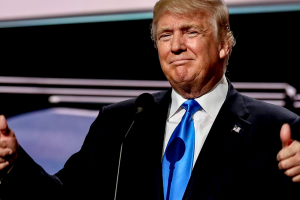
Shares of GameStop (NYSE:GME) are rising higher today following the video game retailer’s third-quarter earnings report. Revenue tallied in at $1.078 billion, down by 9.1% year-over-year (YOY), while net loss was $3.1 million, equivalent to an EPS loss of 1 cent. Analysts were expecting revenue of $1.182 billion, meaning that GameStop fell short by about 8.8%. That’s a significant miss.
GameStop’s revenue is split up into three segments: hardware and accessories, software, and collectibles. All three segments experienced declines on a YOY basis.
Hardware and accessories revenue tallied in at $579.4 million and experienced a decline of 7.6% compared to $627 million a year ago. Software revenue tallied in at $321.3 million, down by about 8.7% from $352.1 million. Finally, collectibles revenue was $177.6 million, down by 14.3% from $207.3 million.
GME Stock: Why GameStop Missed Q3 Revenue Estimates
GameStop conducts business in the U.S., Canada, Australia and Europe. On a YOY basis, Australia sales declined by 16.8%, U.S. sales declined by 13.3% and Canada sales declined by 9.7%. Europe was the odd one out, as its sales increased by 12.8%. The U.S. was GameStop’s largest source of sales during the quarter, tallying in at 64.3%. The smallest source of sales is Canada with its 5.7% contribution.
With all of these declines, it isn’t exactly surprising that GameStop fell short of its analyst revenue estimate. The company ended the quarter with cash, cash equivalents, and marketable securities of $1.2 billion, up from $1.04 billion a year ago.
Meanwhile, the company announced a new policy regarding its excess cash. “On December 5, 2023, the Board of Directors approved a new investment policy (the ‘Investment Policy’) that permits the Company to invest in equity securities, among other investments,” said GameStop. Chairman and CEO Ryan Cohen was given the power to select these investments.
The announcement didn’t resonate well with Wedbush analyst Michael Pachter. Pachter believes that if GameStop was confident in its business it would use its excess cash to buy back its own shares.
“The company’s decision to invest in equities other than its own is alarming, implying that GameStop management believes it will achieve better returns by buying equities aside from its own,” said the analyst.
On the date of publication, Eddie Pan did not hold (either directly or indirectly) any positions in the securities mentioned in this article. The opinions expressed in this article are those of the writer, subject to the InvestorPlace.com Publishing Guidelines.






